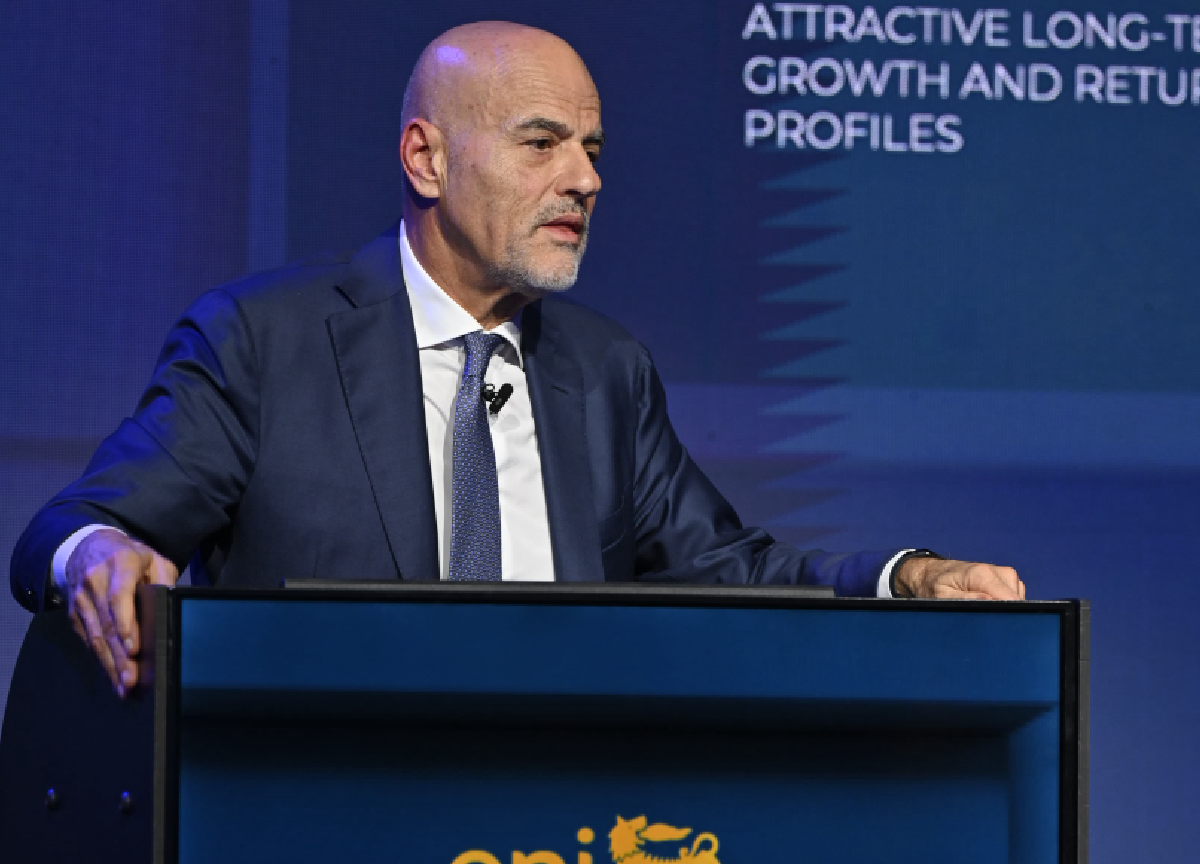“We regularly check our cars, so why shouldn’t we also check our bodies to detect and treat abnormalities before they do too much damage?” The question was asked by a group of Danish researchers in an editorial published in 2014 in The BMJ under a clarifying title: General medical check-ups don’t work. They answered themselves: “It seems very easy, but the human body is not a car and, unlike a car, it has self-healing properties.” They warned, at the same time, that this type of examination, which is carried out on people who do not feel sick and may include diagnostic tests, “will cause damage to some”. But they went further and in 2019 produced a systematic review for the renowned Cochrane Collaboration. After analyzing 17 clinical trials involving 230,000 people and comparing adults in the general public who got checked versus those who didn’t, they found that general check-ups had “little or no effect” on the risk of death from any cause or from cancer. , cardiovascular diseases, heart disease and stroke. Although it may seem counterintuitive, “routinely offering medical check-ups is unlikely to be beneficial and may lead to unnecessary testing and treatment,” the experts concluded.
“When there is already a disease, check-ups are necessary, but doing a screening (screening) in a healthy population is debatable”, corroborates Borja Rivero, a family doctor at the Doctor Morante health center in Santander. “The population demands it, that’s the problem,” he laments. Why undergoing routine medical examinations may not be beneficial? As the Danish specialists explained, “most of the individual screening tests that are usually offered in general health check-ups have not been sufficiently studied.”
Furthermore, “although we cannot be sure that screening will produce benefits, all medical interventions can cause harm.” In a report attached to your investigationlead author Lasse T. Krogsbøll, of the Nordic Cochrane Center and Rigshospitalet, Copenhagen, added argument: “One reason for the apparent lack of effect may be that primary care physicians already identify and intervene when they suspect that a patient is is at high risk of developing a disease when seen for other reasons,” making further screening unnecessary.
But for these people to be identified, they have to go to their health center from time to time, which may not happen precisely in vulnerable groups due to marginality, fragility or other access difficulties. “People at high risk of developing diseases may not attend general health checks when invited or may not follow suggested tests and treatments,” Krogsbøll added. As Rivero explains, this is the well-known “reverse care law”, popularized by the British family doctor Julian Tudor Hart (1927-2018). “The one who demands it the most is attended to and not the one who needs it the most, and the system rewards them. We see it with the digital applications to make an appointment launched by the autonomous communities. It is the young people who ask for a consultation, while the older ones, who do not use the mobile application, are abandoned”.
In any case, Krogsbøll warned that a difference must be made between people who do not feel sick and those with symptoms or a personal or family history of risk. “Our conclusions do not imply that physicians should stop testing and preventative activities for clinical reasons,” she clarified.
The situation in Spain
The objective of general medical check-ups is to detect early risk factors or a disease that has not yet shown itself, or simply to reassure. In Spain, and except in the pediatric age, they are not prescribed for the general population, but specialists in health centers or private practices sometimes perform them, often at the request of their patients. “Primary care has become almost a supermarket shelf where I go and ask for an analysis looking for prevention that has no scientific validity,” says Rivero. “Culturally, they ask for an annual check-up, even if they don’t have anything, something that has encouraged the check-up of the healthy child,” the specialist considers.
In line with the European average, pediatricians and nurses in health centers carry out around 14 check-ups between birth and adolescence, although there is no consensus on the ideal frequency of preventive check-ups at these ages, as detailed in an analysis of health care systems. Child primary care in Europe published in Archives of Disease in Childhood. In fact, their number varies between countries from five in Luxembourg and eight in Denmark, to more than 20 in Slovakia, Latvia, Lithuania and Sweden. “Prevention is important to maintain good health in our children, but there is a lack of evidence on which is the best systematic screening program,” the authors concluded.
“We also have a bias with the work mutuals, which often do an annual analysis and then send them to primary school for us to review it, so they are used to having a meaningless review every year.” Rivero thus refers to check-ups aimed at occupational health, regulated by the Occupational Risk Prevention Law of 1995 and by a Royal Decree of 2011 on prevention services. Every worker has the right to an annual labor medical examination and each employer must offer them periodically, although the employee can reject them, except if certain pathologies are considered to risk the safety of him or his colleagues.
However, they are not aimed at detecting common diseases, but rather at assessing that your health allows you to carry out your activity or detecting diseases derived from it. It is the occupational doctors who decide what to do based on the professional profile. Whereas for an office worker, the check-up usually includes nothing more than a health questionnaire, a physical examination, and perhaps blood and urine tests, a bus driver or an aviation commander will also have to undergo eye exams, just like a miner. respiratory function tests.
False positives and overdiagnosis
But even basic tests, such as blood tests, can lead to unnecessary intervention or treatment. On the one hand, because there are no infallible tests and they can all give false positives (an altered test that turns out to be nothing, with the stress and additional procedures that can entail) or false negatives (a normal result in someone who does have an abnormality, creating a false sense of security). “More medicine is not always better”, argued the specialist in preventive medicine and public health, Andreu Segura, who retired more than a decade ago in EL PAÍS (01/29/2008).
“The confusion that occurs among people and among some colleagues has to do with the idea that the more data, the more knowledge, which is not true,” warns this expert in a telephone conversation, who is still a member of the Bioethics Committee of Catalonia and the Public Health Advisory Council of Catalonia. “It seems logical, but it is a very deficient intuitive logic”, he adds, alluding to Bayes’ theorem, which calculates the conditional probability, essential to interpret any diagnostic test: “the veracity of the results does not depend only on the accuracy of the measurement, but also that what you are looking for is in the population in which you are looking for it”, he clarifies. Thus, and for statistical reasons, the more patients there are in a population, the more reliable a positive result is. Conversely, a positive is more likely to be false for rare diseases.
Safe warning of another additional risk. “With indiscriminate screening, when you go on a fishing expedition to look for things you don’t expect, just in case, the probability of overdiagnosis is very high,” a term that refers to making diagnoses without clinical relevance. “The alteration is one thing and the disease another, but doctors often fall into synecdoche, confusing the part for the whole.” This is the case of finding latent or highly localized cancers that may never have progressed or may even have remitted spontaneously, as explained by Segura and the Cochrane reviewers.
Rivero exemplifies this with a request that he frequently receives: to analyze cholesterol in young people without risk factors. “There is no use looking at a 32-year-old man with no history of sudden death in the family or familial hypercholesterolemia,” which can result in prescriptions for medication of dubious utility and not without risk in the event of minor changes.
Another example of overdiagnosis could be the frequent vitamin D deficiencies that are diagnosed since it has become fashionable to add this parameter to laboratory tests taken for any other reason. In fact, it is not even clear what their correct levels are and the levels agreed upon today among experts could be encompassing many healthy people, as US researchers warned in NEJM.
Scottish general practitioner and educator Margaret McCartney has extensively studied the use of screening to find signs of disease in people who would otherwise never know about it or suffer ill effects, and she also agrees that more diagnoses may not translate into better outcomes. As she related to Guardian, if the entire population were to undergo a brain scan to detect aneurysms (abnormally dilated blood vessels), one would be found in about 2% of people, but since most will never cause problems, interventions resulting from its finding could end up doing more harm than good. McCartney was also citing a talk show mass screening for thyroid cancer in South Korea which detected 15 times more cases, without this having improved mortality from this disease.
Specific screenings that do work
Although their objective is similar, it is worth distinguishing the general check-ups from the national population screening programs that have shown efficacy in early detection of specific diseases. Spanish public health offers screening for three types of cancer for adults: colorectal (stool examination in people between 50 and 69 years of age or earlier in families at risk), cervical or cervix (cytology in women from the age of 25 years) and breast (mammograms for women between 50 and 69 years or earlier in cases of risk), although some professionals believe that the latter contributes little to the decrease in mortality from breast tumors.
Rivero also points out other controversies with some specialists in private healthcare. “They do mammograms to women without risk since they are 40 and cytology annually” [pese a que el cribado nacional la recomienda cada tres años entre los 25 y los 34]which can lead some women to the false feeling that they are “abandoned” in public, she criticizes.
“In clinical practice, we should only use interventions that work,” the Danish specialists pointed out in their editorial, who suggested focusing efforts on “structural interventions to reduce disease. For example, higher taxes on tobacco and alcohol or restrict corporate advertising of harmful products. For Rivero, it is also clear: more than having a general check-up every year, “the key is to maintain the right weight, walk or do moderate physical exercise and not smoke.”
You can follow THE COUNTRY Health and Well-being in Facebook, Twitter and instagram.
#annual #medical #checkups #Experts #warn #risks #reduce #mortality









